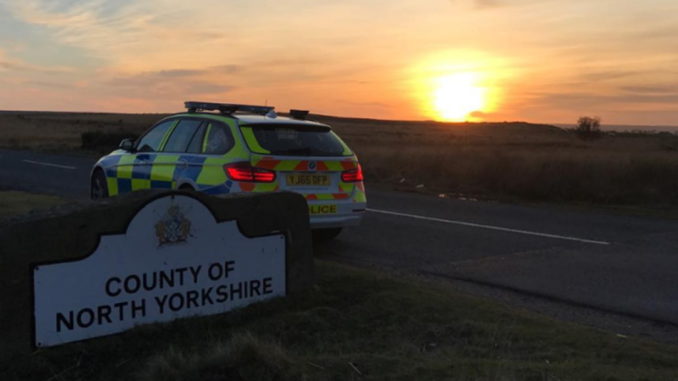
North Yorkshire Police is to use its share of a £30m government fund to enforce the three-tier pandemic restrictions to launch ‘Covid cars’ to rapidly respond to public tip-offs about those flouting rules.
North Yorkshire Police, Fire and Crime Commissioner Julia Mulligan said the force covering England’s largest county is developing proposals which would be presented to the Home Office in the coming week to have specially crewed vehicles primed to react to calls regarding non-compliance with public health rules.
Mrs Mulligan also told the York and North Yorkshire Police, Fire and Crime Panel that North Yorkshire Police was planning on spending part of its £280,000 of ‘surge funding’ on paying for overtime to boost enforcement work, such as patrols at Covid hotspots , around the latest guidelines.
She was speaking as the force began enforcing the three-tier guidelines, which currently in North Yorkshire include a ban on groups of more than six people meeting unless they are in a larger household or a support bubble and pubs, bars and restaurants closing by 10pm.
Should parts or all of the city and county be classed as tier two, police will be tasked with enforcing a ban on people meeting those who they do not live with indoors.
The meeting was told the force was set to focus efforts on upholding rules surrounding licensed premises.
Mrs Mulligan said: “If there are problem premises where residents have concerns about the way they are behaving, then these cars can be deployed to those sorts of things.”
Panel member Councillor Ashley Mason welcomed the force’s proposed use of the government funding, describing it as a “very positive” step.
However, another panel member, Santokh Sidhu, questioned whether the court side of the criminal justice system was adapting well to the pandemic, amid claims by victims of crime that delays to court cases caused by coronavirus are preventing them from processing the trauma.
Mr Sidhu told the meeting: “Justice delayed is justice denied and justice must be seen to be done.”
Figures have revealed the backlog in crown court cases in England and Wales topped 42,000 in June, which represented a 25 per cent increase over the previous year.
Mrs Mulligan said she was unable to immediately share the extent of the backlog in North Yorkshire, but said she had “significant concerns” over crown courts.
The commissioner told the panel while she was quite confident magistrates’ courts backlogs would mostly be cleared before the end of the year, crown court trials with multiple defendants were an issue as they could not all safely be in the dock.
She paid tribute to the “tremendous” efforts of courts staff to enable trials to go ahead, but added: “York Crown Court is a lovely historic building, but doesn’t lend itself to the new alterations around this.”
Mrs Mulligan said plans to increase the court’s accommodation by introducing cabins in the car park overlooked by the historic Clifford’s Tower had been vetoed by City of York Council.
The authority’s leader, Councillor Keith Aspden, replied: “Planning is always one of those things that excites people in York.”


Be the first to comment